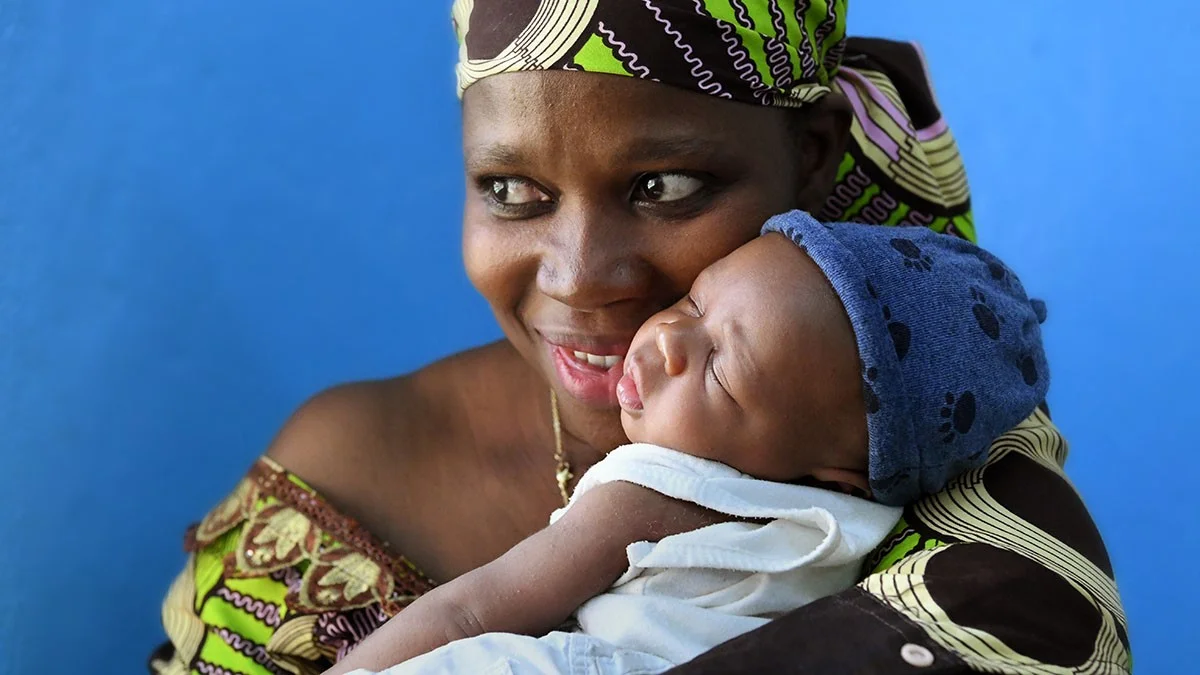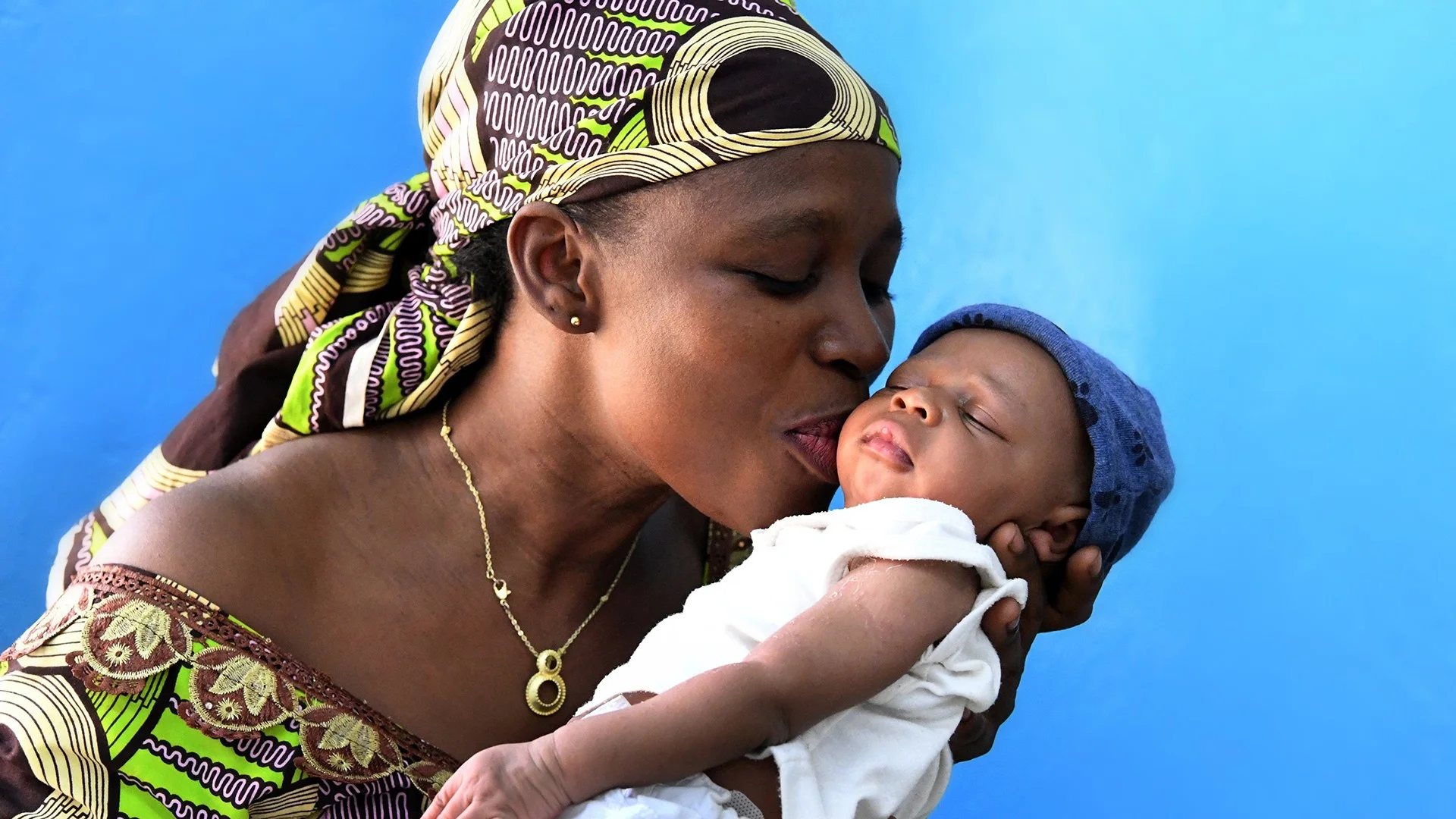Every day, around 850 children are infected with HIV, most of them during pregnancy, birth or breastfeeding. 310 children die every day from AIDS-related causes, mostly due to inadequate access to HIV prevention, care and treatment services. UNICEF works to ensure that babies worldwide receive life-saving testing and effective treatment.
The situation
Every year, approximately 130,000 adolescent girls become infected with the virus. Fewer than half of them (41 percent) know where to get tested. The risk of them transmitting the virus to their baby during pregnancy, childbirth or breastfeeding is around 25 percent, but can be reduced to less than 2 percent with professional medical counseling and effective antiretroviral medications. Today, around 80 percent of pregnant women and new mothers worldwide have access to appropriate therapies.
However, a child under the age of 20 is still infected with HIV every one minute and 40 seconds. Of the 2.8 million children and young people with the disease, nine out of ten live in sub-Saharan Africa. The COVID-19 pandemic has stalled the global fight against HIV and caused many crucial gains to be reversed. Without prompt treatment, half of all HIV-positive infants will die before their second birthday. This makes it all the more important for newborns to be tested as soon as possible, and there is still a lot of catching up to do: only around 54 percent of children and young people born to known HIV-positive mothers received an HIV test within two months in 2019. Similarly, just under half of HIV-positive children under the age of 19 had access to antiretroviral medications.
Meet Ely from Burkina Faso

Ely, 42 years old, cuddles the youngest of her five children. She tested HIV-positive 14 years ago: “I was so shocked. I thought I was going to die. But I followed all the advice and have been taking my medication ever since. I lead a normal life, as I was told I would. The only thing is, here in Burkina Faso it’s still a taboo to talk about it. My children are all healthy, and I can only advise everyone that they should definitely get treatment. Then you can have a life just like everyone else.”
How UNICEF helps
UNICEF is committed to ensuring that mothers and their children around the world have access to prevention, counseling, treatment and care. We support governments and partner organizations in providing HIV prevention measures, testing and medicines across the board; including in remote areas, in crisis regions and among marginalized populations. Key measures to protect newborns include:
- Access to voluntary, confidential counseling and HIV testing
- Professional medical care during pregnancy, before birth and while breastfeeding
- Antiretroviral therapy for mothers and children
In addition, UNICEF tackles major risk factors such as poverty, gender inequality and a lack of education.
